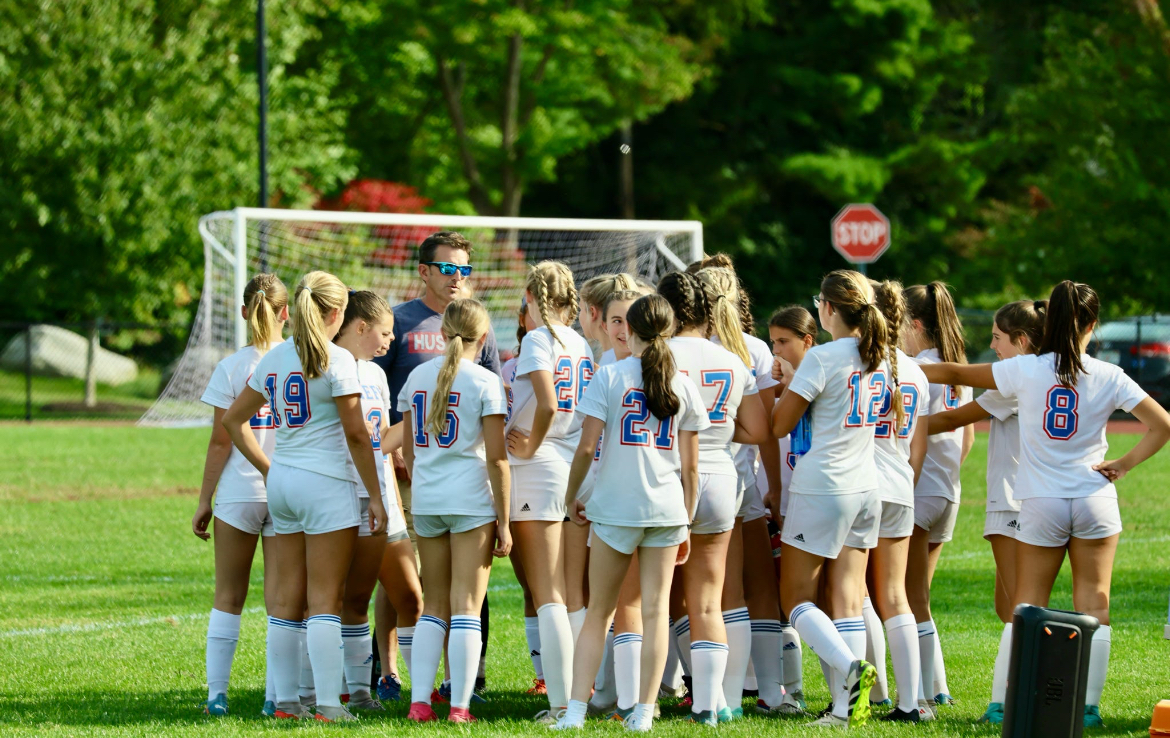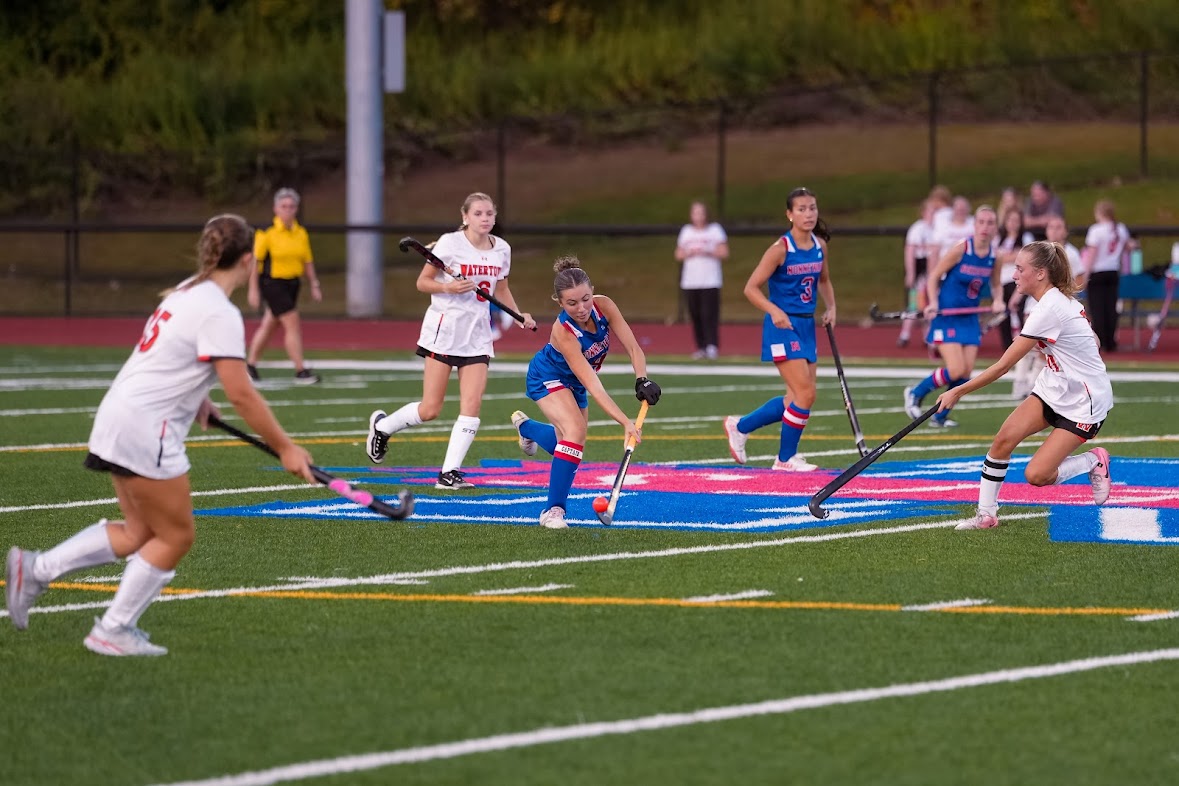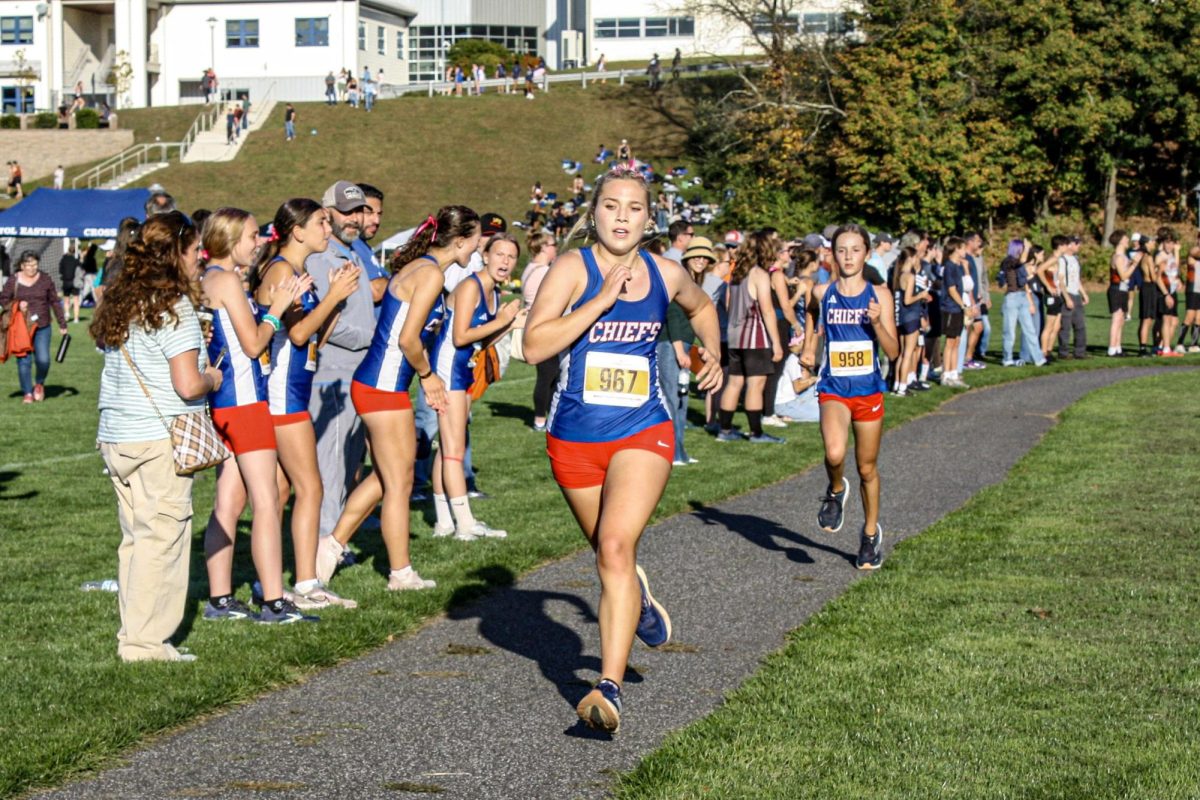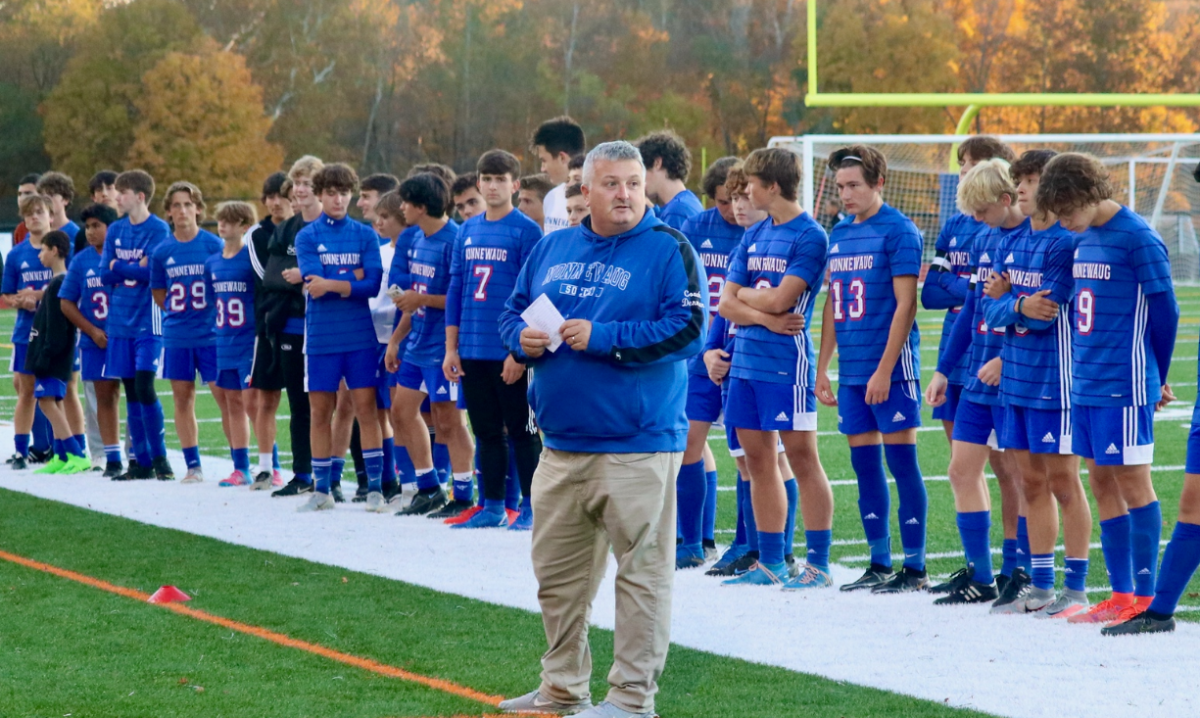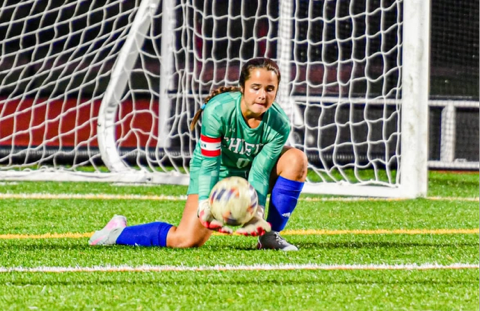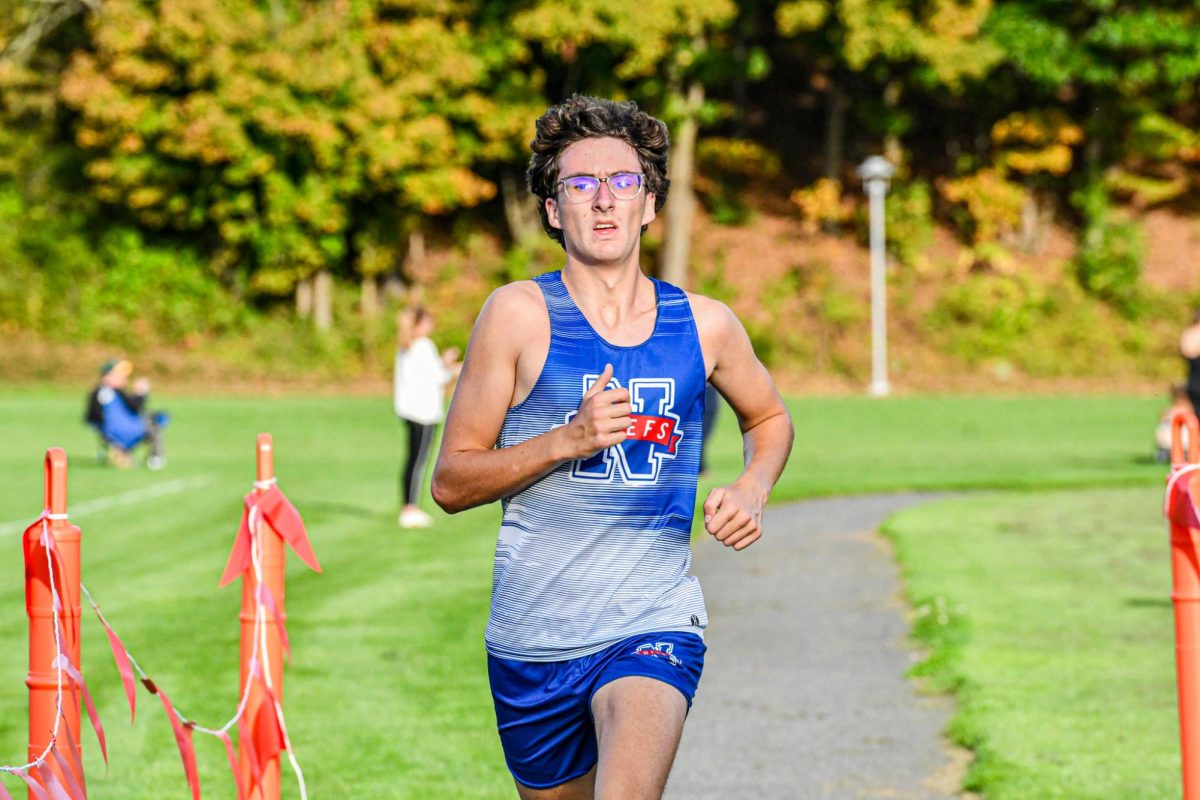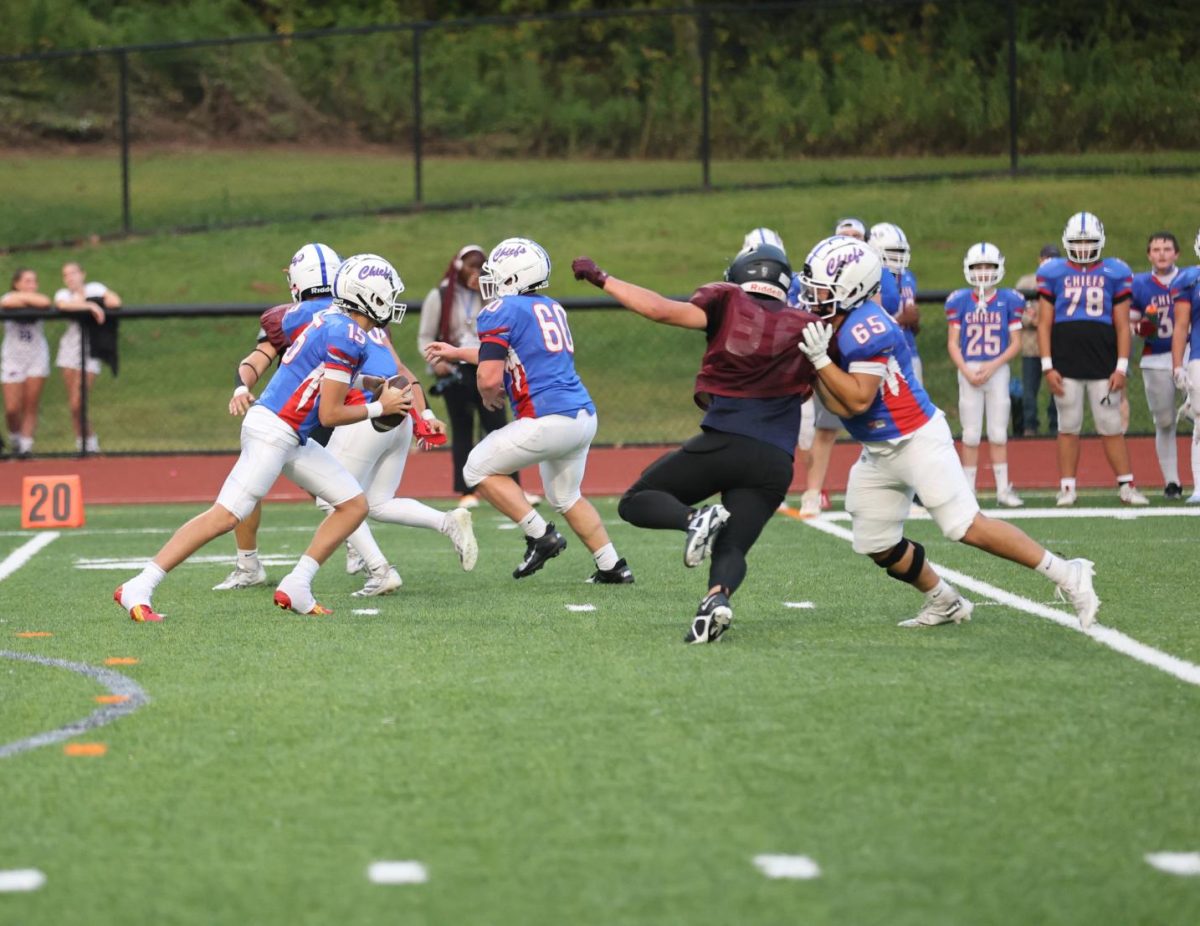WOODBURY — The whistle blows, the bright lights over the cold damp turf hitting you in the face.
Inside the lines of the field, nothing else matters.
Athletes must learn to balance their time, face stress and pressure and much more. There’s many negative and stressful aspects of being part of a team, but the positives are something incomparable.
Playing sports causes a rush of adrenaline, whether it’s catching the ball in the end zone, scoring that tie winning goal, or making your free throws. It’s a feeling like no other.
But sometimes that so-called stress reliever can turn into an anxiety inducer for athletes.
Having athletics after school is sometimes a student’s only way to get through a long school day.
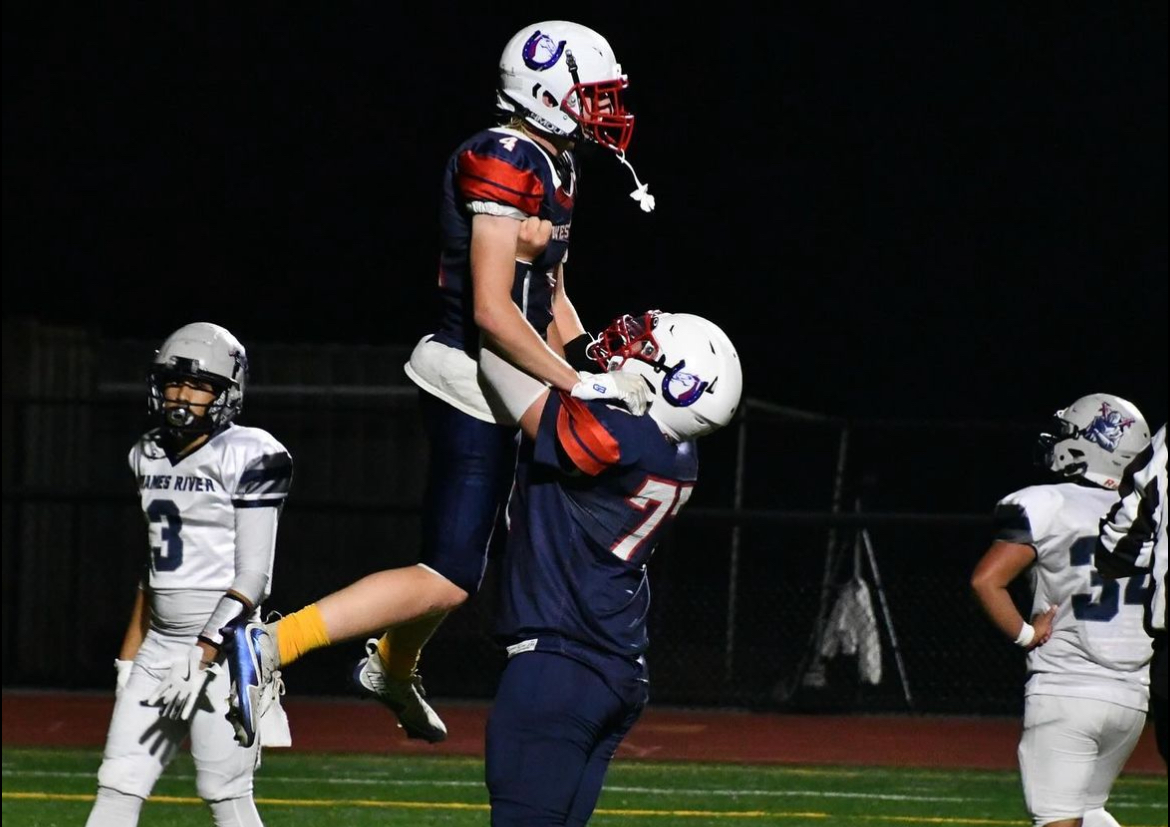
Everyone has something that is a stress reliever, something they do to get away from reality. But athletes need to pick and choose when to escape and when to jump back to reality.
Nonnewuag three-sport athlete and starting QB Brady Herman got thrown into sports as a kid and has continued since.
“Ever since I was young, I was put into sports, I actually don’t think it was my decision,” said Herman. “My parents wanted me to be active and involved as a kid. But I’m so glad they did put me into them and now I still play because I love them. I wouldn’t enjoy school if I didn’t have sports after.”
Herman says the stress he experiences on the field could never take his love out of a sport.
“The stress comes with the territory, it could never take the love I have for sports away,” said Herman. “There are times like baseball where I’m not great at it and getting frustrated easier but still I love it.”
Junior three-sport athlete Ella Quinn says her mindset about stressful situations depends on the situation.
“Mentally, sometimes sports stress me out because there is like a standard that I need to reach when I’m playing under stressful circumstances,” said Quinn. “It can be mentally taxing but when I’m playing for myself it’s a good stress reliever.”
A Lot of Love
Having a strong passion for a sport can be stressful but other times it’s just a whole lotta love. Junior basketball starter McKenna Hardisty’s heart is full when stepping on the court.

“While at times, like a game situation, basketball can be stressful because I care about the outcome of the game, just playing it is altogether a stress reliever for me,” said Hardisty. “Basketball makes me happy.”
Herman also shares love for basketball, but even more than basketball the strong team environment they’ve built.
“Having a strong team environment makes it so much easier. For football we have fun, but it’s definitely serious. We wanna win. Basketball is my favorite team. It’s laid back, but everyone puts in their all, all the time,” said Herman. “It’s a stress reliever for me.”
Building Bromance
“I grew up playing sports with Robert [Metcalfe] and Derek [Chung] when I was little and they’re still my best friends to this day,” said Herman.
Junior three-sport athlete Scott Viveros talks about lifelong friendships made through sports.
“I had a football team when I was younger, we weren’t very good, but they were all like brothers to me, they were easily my best friends at the time,” said Viveros. “It was really good and one of the best teams I’ve ever played on just because of them.”

Playing sports gives children life lessons and experience they don’t teach in school, lessons that help feed the person you grow into.
“I think the benefits of playing sports as a child is learning how to play on a team and is a good way of making new friends,” says Quinn. “Sports taught me how to be disciplined and how to work with other people, as a team, and help me build leadership traits and qualities that help me succeed now.”
Hardisty can rattle off a list of ways sports have positively affected her childhood.
“I’ve played sports since I could walk,” said Hardisty. “I’ve been playing soccer and basketball my whole life. I think that it really helped me be able to work on a team and work with other people as well as get me out of my shell as a child, I was a really shy kid and having to be around other people all the time definitely helped me make friends, but also not only making me work with my peers but also work with people older than me, helping me create many lifelong friendships. Overall helped me learn respect as a child.”
“I play sports because I think they’re fun mostly,” said Hardisty. “I used to play sports because it was good for me to get out but now I play them more for the joy of it than for anything else. Yes it taught me respect and it helps kids learn to work with their peers and also be able to take criticism, coaching from adults.”
Playing sports growing up teaches so many life skills. Viveros feels strongly about the benefits kids have of being involved in sports.
“I believe it’s really important for kids to be involved in teams because it teaches kids how to put in hard work and also can teach them to not be self centered and to not be selfish,” said Viveros. “If they are part of a team they learn to work towards something as a group, as well as give them life skills.”
Quinn also believes in the benefits of childhood sports.
“I think the benefits of playing sports as a child is learning how to play on a team and you get to play with your friends,” said Quinn. “Mentally sometimes sports stress me out because there is like a standard that I need to reach and when I’m playing under stressful circumstances it can be mentally taxing but when I’m playing for myself it’s a good stress reliever.”
Confidence is considered a hard life skill to achieve. Herman believes growing up playing sports helped him gain that confidence.
“Football, mentally for me, I try not to be negative because it’s not my strongest sport compared to basketball,” said Herman. “In football I’m not very confident, I’m timid and stress a lot more about making the right decisions and plays which can get very stressful while in basketball I feel like I have more control on the game and overall more confident. It also may be because I’ve been playing shooting guard in basketball forever compared to QB in football. It is new to me, so I feel more comfortable.”
Balancing It All
While sports can be a stress reliever, throw in school and it can turn into a stress inducer for student athletes.
“With basketball we had a lot of further bus rides and would end up getting home late making everything more rushed, not having time for homework or sometimes not even being able to eat dinner because we’re getting home at 8:30-9:00,” Said Hardisty. “ I think it can be stressful because not all teachers believe me when I tell them I didn’t have time for homework because of a game but it comes with being a student athlete.”
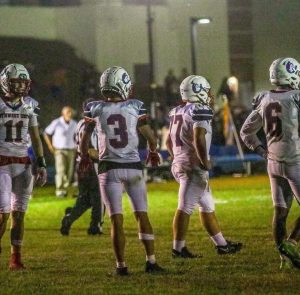
(Courtesy of Noreen Chung)
Even with all the stress, Viveros doesn’t let it take the love out of his passion in sports or school.
“Balancing school and sports is really challenging because you wanna make time for sports because that’s what your passionate about but I’m also very passionate about school so it’s hard to balance homework and definitely just having time to be by myself because having both school and sports can be stressful and sometimes you just need some time relax,” said Viveros. “It can take the love out of the sport if you stress about it too much. That’s why I learned to balance school, football, and life because they are all important to me. There has to be a right balance of worrying or stressing, putting in effort and actually loving the sport because if you are too stressed then it will drain you and take the love out of your passion.”
Between family, school, social life, and athletics, Quinn has learned about the importance of having a strong balance to keep your passion for them alive.
“There’s a lot of things to balance, especially when you play on multiple sports teams. Finding time to balance things like school, family, social life, multiple sports teams and performing your best at all of them can be stressful,” said Quinn. “I think when you are super stressed out, you can become less passionate about it and your will to actually show up and do it will become less and less the more you worry about it. That’s why it’s important to learn to have a good balance.”



